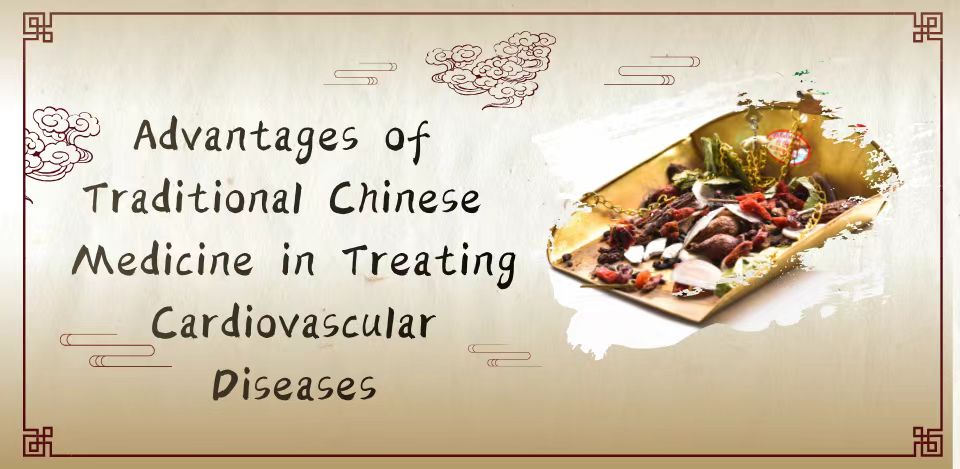Advantages of Traditional Chinese Medicine in Treating Cardiovascular Diseases

Traditional Chinese Medicine (TCM) has unique advantages in treating cardiovascular diseases through syndrome differentiation and personalized treatment. TCM uses specific combinations of herbal formulas to regulate the body’s functions based on the patient’s condition and constitution. Cardiovascular diseases often stem from factors such as qi deficiency, blood stasis, and phlegm retention. TCM treatments focus on improving heart function, regulating blood circulation, and relieving symptoms such as chest tightness and heart pain, aiming to control and alleviate the condition.
1. Qi Deficiency and Blood Stasis Type
Patients with qi deficiency and blood stasis commonly exhibit symptoms like fatigue, shortness of breath, heart palpitations, pale complexion, and weakness. Physical activity often worsens these symptoms, accompanied by chest pain and discomfort in the precordial area.
Pathology
In TCM, “qi is the commander of blood.” Insufficient qi leads to poor blood circulation, resulting in blood stasis. When qi deficiency prevents smooth blood flow, stagnation occurs in the heart, causing symptoms such as chest tightness and palpitations.
Treatment Strategy
The key to treatment is tonifying qi and promoting blood circulation. This helps to alleviate symptoms such as chest pain and palpitations by improving blood flow and strengthening heart function.
2. Phlegm Retention and Obstruction Type
Patients with phlegm retention and obstruction may experience chest tightness, shortness of breath (especially during physical exertion), a heavy body, dizziness, and dull complexion. These symptoms are often seen in individuals with a phlegmatic constitution, where phlegm obstructs the meridians, hindering normal blood flow and placing extra strain on the heart.
Pathology
Phlegm formation is closely related to spleen dysfunction. The spleen governs water metabolism, and when its function is impaired, water retention turns into phlegm. This phlegm blocks the meridians, impeding blood flow and exacerbating ischemic conditions in the heart, leading to chest tightness and difficulty breathing.
Treatment Strategy
TCM treatment focuses on eliminating phlegm, draining dampness, and unblocking the meridians to restore smooth blood flow. By clearing phlegm, the pressure on the heart is reduced, improving symptoms such as chest tightness and shortness of breath.
3. Yin and Yang Imbalance Type
Patients with a yin-yang imbalance often show symptoms like heart palpitations, restlessness, night sweats, dizziness, warm (or cold) extremities, and changes in complexion (red or pale). In TCM, cardiovascular diseases are linked to an imbalance in yin and yang. This may manifest as either yin deficiency, leading to excess yang, or yang deficiency, resulting in insufficient heart energy.
Pathology
Yin deficiency causes excessive yang, leading to restlessness and insomnia, while yang deficiency manifests as insufficient cardiac energy, causing cold extremities, fatigue, and worsening palpitations. Both imbalances disrupt heart function and contribute to cardiovascular disease progression.
Treatment Strategy
Treatment is tailored to the specific imbalance:
- Yin deficiency: Nourishing yin and lowering fire is essential to calm the mind.
- Yang deficiency: Warming and tonifying the heart’s yang energy helps to enhance heart function and restore balance between yin and yang.
Disclaimer: Every individual’s constitution and symptoms are different. If you experience any symptoms of cardiovascular disease, please seek medical advice from a healthcare professional and follow their instructions.

